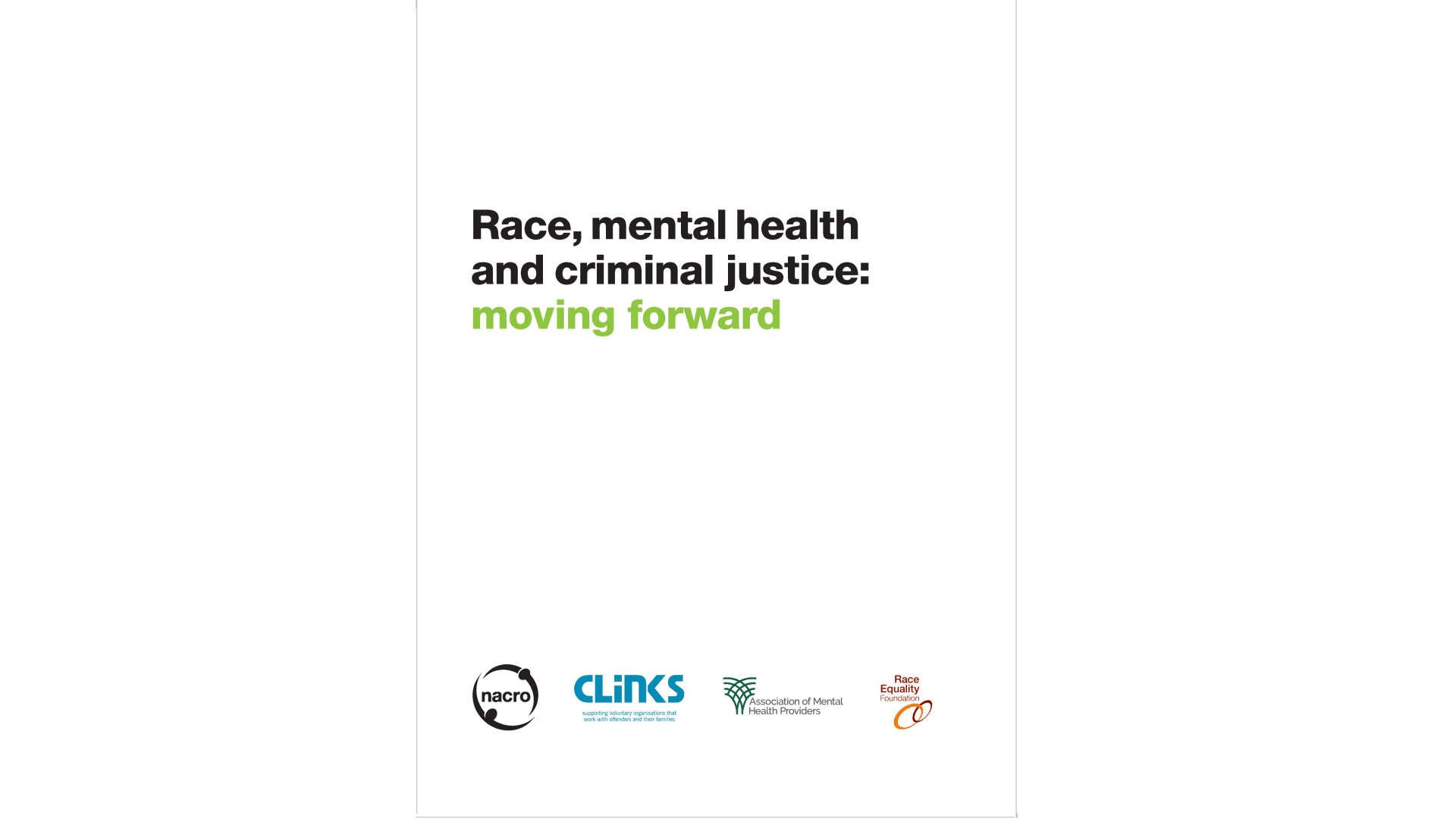
Race, mental health and criminal justice: moving forward
A new joint briefing, ‘Race, mental health and criminal justice: moving forward’, from social justice charity, Nacro, Clinks, the Association of Mental Health Providers, Mental Health Foundation and the Race Equality Foundation has found that voluntary sector practitioners and service users from Black, Asian and minority ethnic (BAME) backgrounds are extremely concerned that too many people from BAME communities with mental health needs are in contact with the criminal justice system (CJS). The briefing also highlights that the current justice and mental health service workforces need more training to meet individual needs and to avoid a ‘one size fits all’ approach.
Existing research highlights that people from BAME communities are 40% more likely than White British people to access mental health services through the CJS, rather than through local health services. In addition, people from BAME groups are more likely to be arrested – 56 Black people out of every 1,000 are arrested compared to 19 White British people.
The briefing highlights a number of recommendations to address key concerns raised by BAME communities including:
- Mental health and criminal justice practitioners should receive improved diversity and race equality training to address discrimination and stereotyping concerns and improve understanding of BAME communities.
- Commissioners and providers should ensure that workforces are representative of the communities they serve.
- Assessments completed during all stages of the justice pathway should appropriately assess the impact of trauma, and consider the spiritual and faith needs of individuals and integrate this into each individual care plan.
- Commissioners and providers should liaise directly with service users and those with direct experience to understand how services should be designed to effectively engage people from BAME communities in mental health treatment.
Nacro Chief Executive, Jacob Tas, said:
“We already know that a negative bias exists for BAME groups at many stages of the CJS. It is concerning to hear that people are experiencing this negative bias to the point that it inhibits the delivery of effective mental health support.
“People in contact with the CJS already suffer significant health inequalities, particularly in the area of mental health. If people from BAME groups have a poor experience with mental health services, they are less likely to engage in the future. This is why commissioners and providers must work with people with direct experience to understand how services should be designed to better engage people from BAME communities in mental health treatment at the earliest opportunity and ideally before they have contact with the CJS.”
